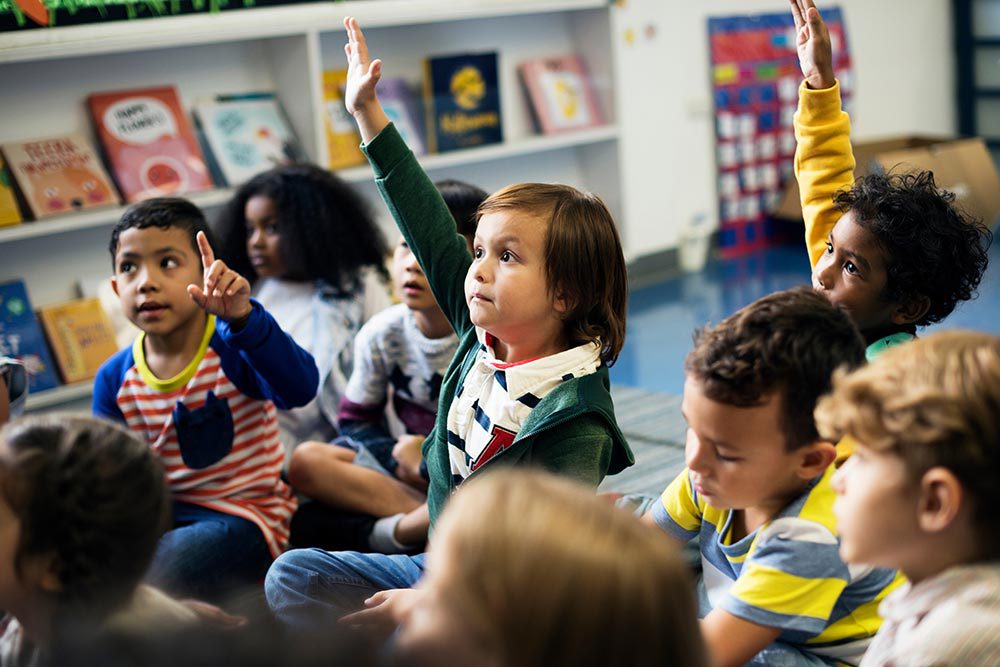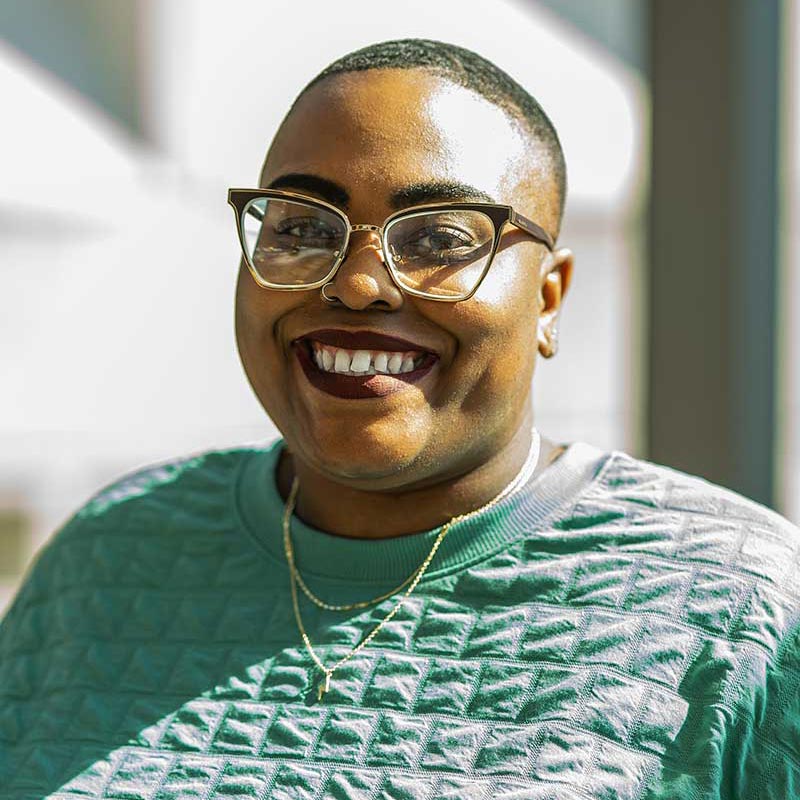How To Teach Your Kindergartener About Black History

The Black History Month celebration is an important part of American history for all races, but doesn’t have to end there.
The word kindergarten quite literally means garden of children–so apropos–as this is where the seeds of their future are planted. If nourished properly, their knowledge can take root and be the compass for which they are guided through life with a conviction of acceptance and inclusion. That is why it’s integral to have a solid foundation of the truth of American history, which includes Black history, as they are soaking up the knowledge that adults in their lives provide. Exposing all children to a diverse and inclusive society is vital.
Dawnavyn James, a Black history educator and researcher in elementary and early childhood studies, began her teaching career in Columbia, Missouri, where she worked for seven years. The Kansas City native taught in predominantly white schools and for four years, was the only Black teacher. After realizing a lack of Black history education in school curriculums, James took it upon herself to create a program that included this essential information. “Students weren’t learning it,” she says, “and if they were, teachers waited until January to talk about Martin Luther King, Jr. Then there’s Black History Month but afterward, schools forget about Black history.”
James resolved to introduce a wider variety of Black figures into the elementary space and noticed her kids were not only learning but interested in knowing more. Students would go home and share what James was teaching them with their families, and she garnered praise from parents, even accepting suggestions of books and ideas to continue to further the teaching. She also sought to help the rest of the school’s staff do the same.
Here at Pregnancy & Newborn, we are so appreciative that James has told us what worked for her in the classroom, and how you, too, can teach your kindergartners about Black history.
Hit the Books
Picture books are key. “They’ll hold the attention of your kindergartner while showing them images and examples in a way that they can understand,” James says. While there are many to choose from, currently in James’ top three are The ABC’s of Black History by Rio Cortez, which mentions Black figures in history that are not typically spoken about, as well as voting, and the African diaspora; Africa, Amazing Africa by Atinuke, a picture book that sets Africa in the present day, teaching kids about the different countries, languages, foods, and clothing, and expelling myths about the continent; Pies From Nowhere by Dee Romito, which gives a different perspective of the Montgomery Bus Boycott, explaining how Georgia Gilmore used her love of baking to help finance the movement. Pies From Nowhere also comes with a recipe that James would send home to families for them to try.
Get Visual
James recommends bringing items into the conversation that will make kids think about inventions. “I brought in an ice cream scoop,” she says, “because a Black man named Alfred L. Cralle invented that.” She also added a bit of fun by bringing in ice cream, too. Not to mention that a Black man and former White House chef named Augustus Jackson from Philadelphia revolutionized the ice cream industry, in part, by making it eggless, inventing new flavors, and adding salt, which lowered the temperature so it could be kept colder for longer periods.
Go to Museums
Many museums across the country focus on the Black experience. James suggests visiting them with your kindergartener. If there isn’t one near you, that’s OK! “Even if you can’t visit them,” says James, “they are available virtually.” The National Museum of African American History and Culture has an early childhood section and parents can download “cool books” for kids, as well as look at artifacts online.
Get Out and About
James notes there are usually many local events going on during Black History Month and suggests heading down to your local library, for example, to get a listing of attractions and their locations. “They’re usually geared specifically towards little ones, so there will be age-appropriate opportunities to learn and have fun. ”
Give Them Screentime
There are so many animated cartoons, movies, and television programs that can expose your kids to diverse casts and subject matters, including a plethora of animated shows that will be fun and informative for kindergartners to watch, says James. She also advises caregivers to watch the programming with their kids and ask questions about what they’ve seen, to gauge their level of understanding.
Try the Disney flick The Color of Friendship (Rated G) where two girls from different backgrounds are forced to face their biases to uncover what friendship really means; Akili and Me, a YouTube series where kindergarteners can sing along with a 4-year-old African girl and her friends as they joyfully strengthen their knowledge of numbers, letters, language, and art; or PBS Kids’ comprehensive Black History Month programming that includes open and honest discussions in their special PBS Kids Talk About: Race and Racism and Xavier Riddle and the Secret Museum, where your kids can travel back in time to learn about Black leaders in history, including Jesse Owens and Ella Fitzgerald.
Focus on Celebration
“So often there is only talk about oppression, slavery, and the civil rights movement, but we don’t teach the full humanity of Black people,” says James. “Black History Month is very important, but you can’t do it all in February,” she continues. “There’s not enough time, there are not enough days. It’s really important to highlight the joy, determination, and innovation which is what Carter G. Woodson, the founder of Black History Month, intended it to be about.” James also mentions that throughout the year there are opportunities for parents to talk about other topics of the Black experience in order to deepen their child’s knowledge of Black history.
By the time they reach kindergarten, kids have already seen more than you may realize, and they will have questions. “Don’t underestimate the knowledge of our children and think they can’t handle something,” James says. “Usually, they are more aware and know a lot more than we think. It’s important for kids to have discussions and talk about these things and to recognize the contributions of Black people to our country. They live in a country where Black people are, so seeing that history is crucial.”

Dawnavyn James is a fellow at the Center for K-12 Black History and Racial Literacy Education and a Black history educator and researcher. She is currently pursuing her PhD in elementary and early childhood curriculum, instruction, and Black history education at the University of Buffalo.







